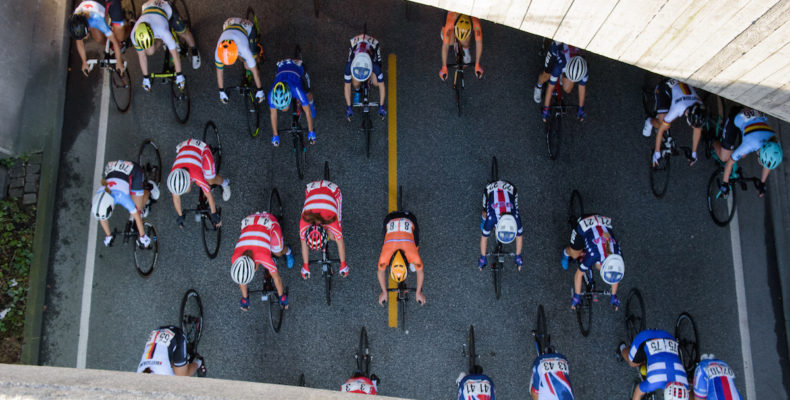2022 Rider Survey demonstrates progress for riders in the Women’s World Tour in improved working conditions and economic prospects, but more needs to be done for Continental Riders.
The Cyclists’ Alliance (TCA) carries out an annual rider survey to provide hard data on the current ‘status quo’ of the professional women's cycling peloton. Now in its 5th Edition, the survey enables the TCA to obtain data and track change in professional cycling. This data is used to shine a light on key issues and problems, which we aim to solve for the riders.
This is the only survey that is carried out annually to show year on year change and that gathers direct quantitative and qualitative feedback from professional riders, giving the riders a collective voice on a range of topics including, employment and income, team support and culture and professional support. TCA encourages stakeholders from the sport to get in contact to learn more about how they can align their organisations ambitions to address the issues, improve conditions for riders and ultimately progress the sport forwards. TCA believes the only way to change women’s cycling for the better is to work together as a unified body of athletes to identify issues. By tackling these together, we can create lasting positive change.
73% of riders surveyed reported being Very Happy or Happy, a 30% increase since 2021. Reasons cited by riders in the survey demonstrate increasing professionalism of teams through rider-focused initiatives such as; professional training camps including the addition of altitude training, media training, race analysis and tactical skill development, specialist staff hires such as nutritionists and mental coaches.
However, 11% of riders are Unhappy or Very Unhappy in their team citing poor management team and pressured into situations they feel uncomfortable with.
In 2022, the number of women's World Tour teams has increased from 9 to 14, meaning more riders are eligible for the mandatory minimum salary. Our survey demonstrated that many riders are paid significantly more than the minimum requirement regulated by the UCI. 13% of WWT riders stated they earned over €100K+ per year (a 11% increase YoY) and 24% of WWT riders earning between 60,000 - 100,000 Euros per year (a 17% increase YoY).
However, outside of the WWT, only 15% of female professional cyclists receive an income of 20,000 EUR or more and there are still a vast number (23%) of riders racing with no income from their Continental team. There were athletes racing this year’s Tour De France Femmes who received no salary from their team racing against riders earning a triple figure salary.
The wage disparity gap between the two tiers continues to widen each year. The UCI should consider solutions to mitigate and the TCA is happy to be consulted as unfortunately “Financial reasons” remains the main reason for leaving the sport of professional cycling earlier than planned for female cyclists.
More than half of all respondents (56%) believe that increasing live TV coverage is a key topic for the stakeholders in the sport to focus on. This year’s Tour De France Femmes demonstrated a huge potential audience when it is broadcast live; with 20 million people in France watching across the 8-stages. The peak viewing moment was 5.1 million viewers, a 45.6% audience share, for the finish atop La Super Planche des Belles Filles where Movistar’s Annemiek van Vleuten was crowned the overall winner.
The number of 1-year employment contracts reduces by 30% year on year, and multi-year deals are increasing which reduces instability for riders. 30% of riders are using agents to negotiate their contractual terms; but this skews 81% WWT riders to 24% Continental Riders.
Read the presentation to find out more!
2022Survey_FinalInterested in 2021's results. Read them here.

